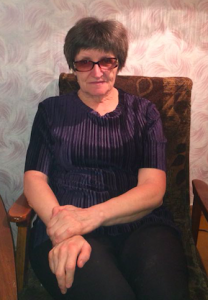© 2016 Elena Ivanovna KIRILENKO
2016 – №2 (12)
 Keywords: American medical anthropology, cultural competence, social phenomenology, family medical experience, religious factors and medical experience
Keywords: American medical anthropology, cultural competence, social phenomenology, family medical experience, religious factors and medical experience
Abstract: The article offers an analysis of Rachel Spector’s ideas who defined the task of shaping cultural competencies among medical specialists as an important educational and practical imperative. R. Spector gives a detailed anthropological explanation to the thesis that the practice of health care is culturally conditioned.
The history of American medical anthropology is informative and instructive (see: Mikhel 2010). Rachel E. Spector (born in 1940) is an American researcher (PhD), a medical practitioner (nursing care), as well as a teacher with about 40 years of teaching experience. She defined the task of shaping cultural competencies among medical specialists as an important educational and practical imperative. Cultural competence, R. Spector notes, is not developed simultaneously and instructively. This is a long process which includes several stages of work: developing awareness of the specifics of one’s own medical experience, the idea of alternative views on these issues which exist in other families and communities; mastering of various strategies in the area of philosophy of health, as well as ideas of modern and traditional variants of medical experience.
The cultural competence of a medical worker, according to R. Spector, is the ability to perceive the situation from the point of view of the patient, taking into account his/her needs and expectations. But why is it possible to look at the medical situation from the position of the patient, and how is this personal experience revealed, which accounts for the multiple palette of medical preferences?
In cultural retrospective, we can distinguish the coexistence of two types of construction of medical discourse: narrowly pragmatic and human-oriented, while the latter corresponds to the need for the modern medical worker to develop the ability to see the patient’s point of view on his/her own situation. The necessary tools for identifying this point of view are offered by subject-driven methodologies, in particular social phenomenology by A. Schütz. In the shaping of the lifeworld, various levels of relevance are important – motivational, thematic and interpretative – reflecting the degree of complexity in building experience of interaction with the world.
The cultural-anthropological approach sees the idea of health and illness as an element of the structure of the individual’s lifeworld. Any therapy affects it in one way or another, it cannot be thought of in isolation from the whole life environment of the individual.
Motivational and thematic relevance is situational experience that can be embedded in the family life. Here there are stable forms of behavior which reinforce the primary direct experience of ordering a painful situation. This patients’ experience is unconscious, transmitted in generations primarily via the mother’s side of the family. In the work of R. Spector there is data gathered from representatives of different cultures and demonstrating, in fact, the experience of family medicine. Mastering family traditions is a step towards the shaping of cultural competencies in the area of health / illness experience. The thesis that the practice of health care and maintenance is culturally conditioned receives a detailed anthropological justification in R. Spector works.
References
Bogdanov, K.A. (2005) Vrachi, patsienty, chitateli: patograficheskie teksty russkoi kul’tury XVIII–XIX vekov [Doctors, patients, readers: pathological texts of Russian culture of the XVIII-XIX centuries], Moscow: OGI.
Dal’, V.I. (1907) Tolkovyi slovar’ zhivogo velikorusskogo iazyka: v 4 t., 3-e izd., t. 3 [Explanatory dictionary of the living Great Russian language: in 4 volumes, 3rd ed., Vol. 3], SPb.; M.: M.O. Vol’f”.
Konovalov, V.V. (1996) Krizis meditsiny na rubezhe KhKh–KhKh1 vekov i puti preodoleniia [The crisis of medicine at the turn of the 20th and 21st centuries and ways to overcome], Chelovek [Human], №1, p. 106–119.
Mikhel, D.V. (2010) Meditsinskaia antropologiia: istoriia razvitiia distsipliny: ucheb. posob. dlia stud. [Medical anthropology: the history of the development of discipline: Textbook for Students], Saratov: Tekhno-Dekor.
Schütz, A. (1995) Nekotorye struktury zhiznennogo mira [Some structures of the vital world], Filosofiia iazyka i semiotika [Philosophy of Language and Semiotics], Ivanovo: Ivanovskii gos. un-t, p. 213–229.
Spector, R. E. (2013) Cultural diversity in health and illness/Rachel E. Spector, 8th ed. p. cm, New Jersey.
Strohecker, J. (2005) Creating a Culture of Wellness, Total Health, Aug., V. 27, Is. 3, р. 10–12.
The article is available in full version in Russian